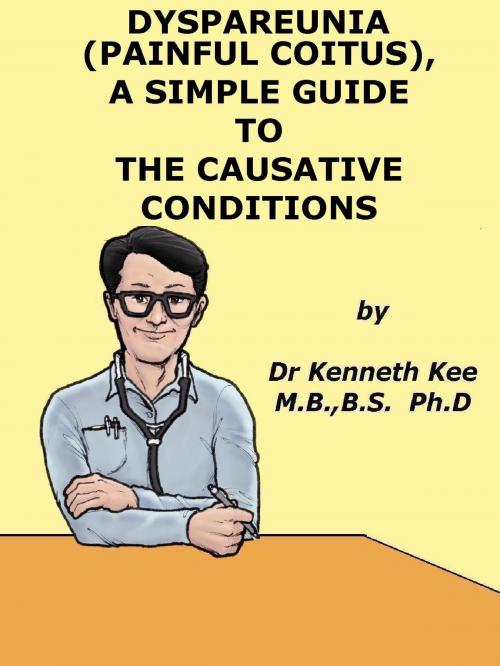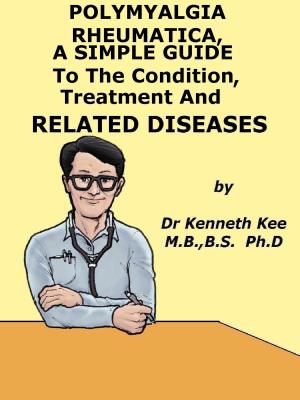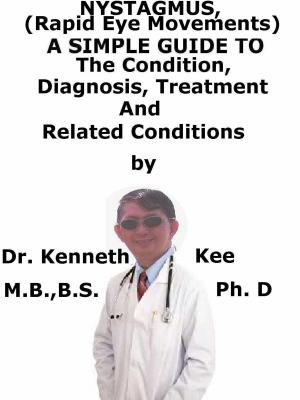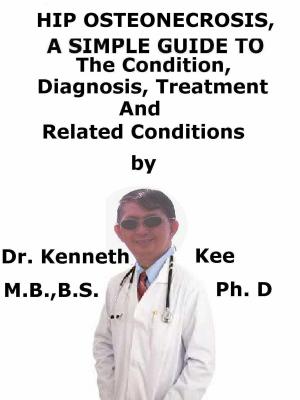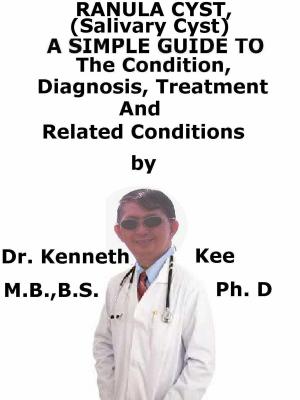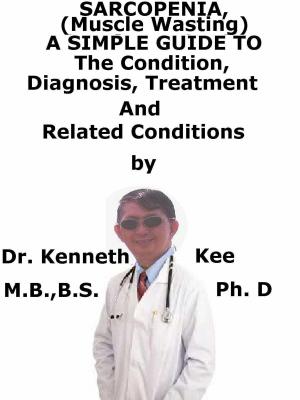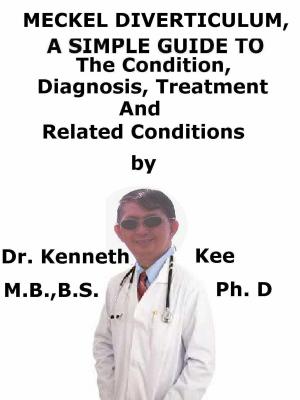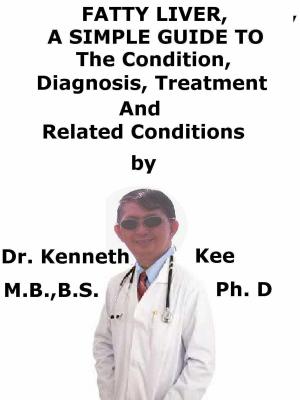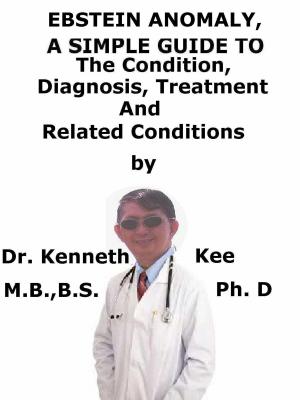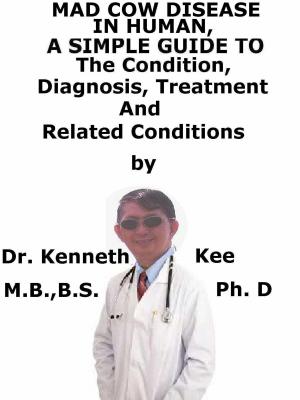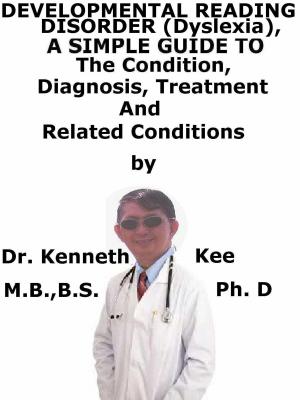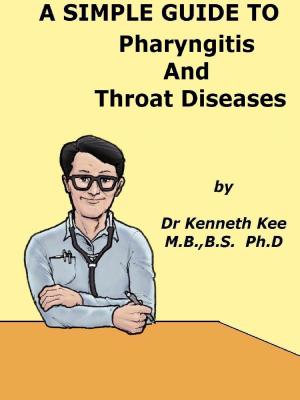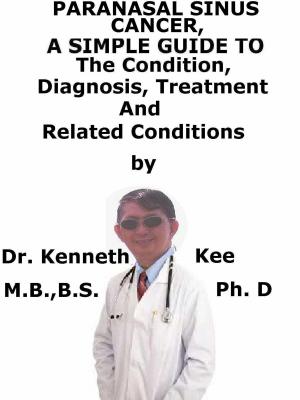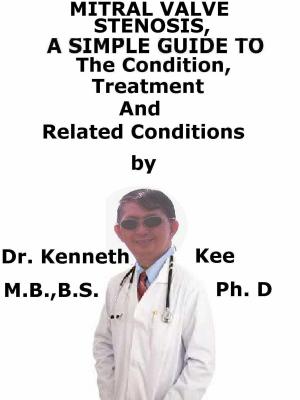Painful Coitus or Dyspareunia, A Simple Guide To Causative Diseases
Nonfiction, Health & Well Being, Health| Author: | Kenneth Kee | ISBN: | 9781311877628 |
| Publisher: | Kenneth Kee | Publication: | December 11, 2014 |
| Imprint: | Smashwords Edition | Language: | English |
| Author: | Kenneth Kee |
| ISBN: | 9781311877628 |
| Publisher: | Kenneth Kee |
| Publication: | December 11, 2014 |
| Imprint: | Smashwords Edition |
| Language: | English |
Dyspareunia you are what couples hate
You cause the pain when they mate
Men feel pain with their tight foreskin
Women feel pain when the penis tries to get in
Sometimes the pain occur when there is a hard hymen
To break through, the pain will definitely heighten
Remnants of the hymen being stretched also cause pain
So does infections of the vulva and Bartholin gland
Pelvic inflammatory disease and vaginal infection
Thinning of the vaginal wall and poor lubrication
Friction and irritation of the vagina will produce pain
More lubricants and foreplay will reduce the strain
Surgery scar can make the opening too tight and sore
Penetration by the penis will be painful and raw
What an enjoyable encounter will not be so
Sometimes it is better for a couple to forego
Remove the pain and enlarge the opening by operation
Antibiotics and hormones will reduce the inflammation
Vaginal lubricants, pelvic relaxation exercises will facilitate
Increased foreplay, gentleness in sex, the couple will be more intimate
-An original poem by Kenneth Kee
Interesting Tips about the Painful Coitus
A Healthy Lifestyle
1. Take a well Balanced Diet
2. Encourage the couple to add pleasant, sexually exciting experiences to their regular interactions, such as bathing together
Moisturizing skin lotion may be recommended as an alternative lubricant
Recommending a change in coital position to one admitting less penetration
3. Keep bones and body strong
Bone marrow produces our blood
Eat foods rich in calcium like yogurt, cheese, milk, and dark green vegetables.
Eat foods rich in Vitamin D, like eggs, fatty fish, cereal, and fortified milk.
Eat food rich in Vitamins B and C such as green vegetables and fruits
Zinc and other minerals are important to the body
4. Get enough rest and Sleep
Avoid stress and tension
5. Exercise and stay active.
It is best to do weight-bearing exercise such as walking, jogging, stair climbing, dancing, or lifting weights for 2½ hours a week.
One way to do this is to be active 30 minutes a day at least 5 days a week.
Begin slowly especially if a person has not been active.
6. Do not drink more than 2 alcohol drinks a day for a man or 1 alcohol drink a day for a woman.
Alcohol use also increases the chance of falling and breaking a bone.
Alcohol can affect the neurons and brain cells.
Too much alcohol with smoking can increase sensitivity to painful intercourse.
7. Stop or do not begin smoking.
It also interferes with blood supply and healing.
Smoking reduces the blood flow to the uterus and can increase pain.
Chapter 1
Dyspareunia
Dyspareunia is defined as painful coitus.
Dyspareunia (from Greek meaning "badly mated") is pain during or after sexual intercourse due to medical or psychological causes.
It can affect men but is more common in women
Women with dyspareunia may have pain in the vagina, clitoris or labia.
Risk factors
It occurs most frequently in:
1. Those who are sexually inexperienced (particularly if their partners are also inexperienced)
2. Those who are peri- or post-menopausal
The causes are often reversible even when long-standing but self-perpetuating pain is a factor after the original cause has been removed.
For women causes include:
Congenital
1. Endometriosis
2. Vaginal septa
3. Thickened undilatable hymen
4. Hypoplasia of the introitus
5. Ovarian cysts can cause deep pain
Acquired
1. Infections candidiasis, chlamydia, trichomoniasis, urinary tract infections, pelvic inflammatory disease
2. Vulvar vestibulitis
3. Tumors like uterine fibroids can cause deep pain
4. Xerosis (dryness, especially after the menopause)
5. Interstitial cystitis
TABLE OF CONTENT
Introduction
Chapter 1 Dyspareunia
Chapter 2 Vaginismus
Chapter 3 Pelvic Infections
Chapter 4 Vulvitis and Vaginitis
Chapter 5 Bartholin Cyst and Vulvar Cysts
Dyspareunia you are what couples hate
You cause the pain when they mate
Men feel pain with their tight foreskin
Women feel pain when the penis tries to get in
Sometimes the pain occur when there is a hard hymen
To break through, the pain will definitely heighten
Remnants of the hymen being stretched also cause pain
So does infections of the vulva and Bartholin gland
Pelvic inflammatory disease and vaginal infection
Thinning of the vaginal wall and poor lubrication
Friction and irritation of the vagina will produce pain
More lubricants and foreplay will reduce the strain
Surgery scar can make the opening too tight and sore
Penetration by the penis will be painful and raw
What an enjoyable encounter will not be so
Sometimes it is better for a couple to forego
Remove the pain and enlarge the opening by operation
Antibiotics and hormones will reduce the inflammation
Vaginal lubricants, pelvic relaxation exercises will facilitate
Increased foreplay, gentleness in sex, the couple will be more intimate
-An original poem by Kenneth Kee
Interesting Tips about the Painful Coitus
A Healthy Lifestyle
1. Take a well Balanced Diet
2. Encourage the couple to add pleasant, sexually exciting experiences to their regular interactions, such as bathing together
Moisturizing skin lotion may be recommended as an alternative lubricant
Recommending a change in coital position to one admitting less penetration
3. Keep bones and body strong
Bone marrow produces our blood
Eat foods rich in calcium like yogurt, cheese, milk, and dark green vegetables.
Eat foods rich in Vitamin D, like eggs, fatty fish, cereal, and fortified milk.
Eat food rich in Vitamins B and C such as green vegetables and fruits
Zinc and other minerals are important to the body
4. Get enough rest and Sleep
Avoid stress and tension
5. Exercise and stay active.
It is best to do weight-bearing exercise such as walking, jogging, stair climbing, dancing, or lifting weights for 2½ hours a week.
One way to do this is to be active 30 minutes a day at least 5 days a week.
Begin slowly especially if a person has not been active.
6. Do not drink more than 2 alcohol drinks a day for a man or 1 alcohol drink a day for a woman.
Alcohol use also increases the chance of falling and breaking a bone.
Alcohol can affect the neurons and brain cells.
Too much alcohol with smoking can increase sensitivity to painful intercourse.
7. Stop or do not begin smoking.
It also interferes with blood supply and healing.
Smoking reduces the blood flow to the uterus and can increase pain.
Chapter 1
Dyspareunia
Dyspareunia is defined as painful coitus.
Dyspareunia (from Greek meaning "badly mated") is pain during or after sexual intercourse due to medical or psychological causes.
It can affect men but is more common in women
Women with dyspareunia may have pain in the vagina, clitoris or labia.
Risk factors
It occurs most frequently in:
1. Those who are sexually inexperienced (particularly if their partners are also inexperienced)
2. Those who are peri- or post-menopausal
The causes are often reversible even when long-standing but self-perpetuating pain is a factor after the original cause has been removed.
For women causes include:
Congenital
1. Endometriosis
2. Vaginal septa
3. Thickened undilatable hymen
4. Hypoplasia of the introitus
5. Ovarian cysts can cause deep pain
Acquired
1. Infections candidiasis, chlamydia, trichomoniasis, urinary tract infections, pelvic inflammatory disease
2. Vulvar vestibulitis
3. Tumors like uterine fibroids can cause deep pain
4. Xerosis (dryness, especially after the menopause)
5. Interstitial cystitis
TABLE OF CONTENT
Introduction
Chapter 1 Dyspareunia
Chapter 2 Vaginismus
Chapter 3 Pelvic Infections
Chapter 4 Vulvitis and Vaginitis
Chapter 5 Bartholin Cyst and Vulvar Cysts
